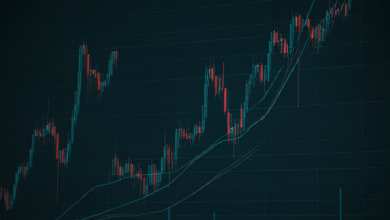Fundamental Analysis
Fundamental analysis is a method used to assess the intrinsic value of an asset based on economic and financial factors. This type of analysis helps traders and investors make better decisions regarding the buying or selling of assets.

Fundamental analysis is a method used to assess the intrinsic value of an asset based on economic and financial factors. Fundamental analysts examine both macroeconomic and microeconomic factors that can influence asset prices, including:
- Economic Conditions: Economic indicators such as Gross Domestic Product (GDP), unemployment rates, and inflation can indicate the overall health of an economy.
- Companies and Industries: In stock analysis, examining the financial status and performance of relevant companies and industries is crucial. This includes revenue, profit, debt, and management.
- Political and Economic Events: Political decisions, regulatory changes, and international developments can significantly impact markets.
Tools of Fundamental Analysis:
- Financial Reports: Analyzing a company’s financial statements, including balance sheets, income statements, and cash flow statements, helps analysts evaluate the company’s financial performance.
- Financial Ratios: Ratios like Price-to-Earnings (P/E), Current Ratio, and Debt-to-Equity Ratio are tools for assessing a company’s financial status.
- Industry Analysis: Understanding industry trends and conditions can help predict a company’s future direction. Analysts should pay attention to competitors, opportunities, and threats within the industry.
Strengths and Weaknesses of Fundamental Analysis:
- Strengths:
- Accurate Evaluation: Fundamental analysis can identify undervalued assets and investment opportunities.
- Focus on Macroeconomic Factors: This type of analysis considers broader impacts, including economic and political conditions.
- Weaknesses:
- Time-Consuming: Fundamental analysis requires significant time and research, which may not be suitable for day traders.
- Inaccuracy in Predictions: Fundamental analysis may not accurately predict short-term price movements.
Market Psychology in Fundamental Analysis: Fundamental analysis also considers market psychology. Trader and investor behavior, influenced by news and economic events, can lead to unusual price fluctuations. Understanding these impacts can assist analysts in predicting future behavior.
Conclusion: Fundamental analysis is a vital tool for assessing the intrinsic value of assets and making informed investment decisions. By examining economic, financial, and political factors, analysts can exploit investment opportunities. This type of analysis is particularly suitable for long-term investing and can complement technical analysis, aiding traders in making better decisions.




